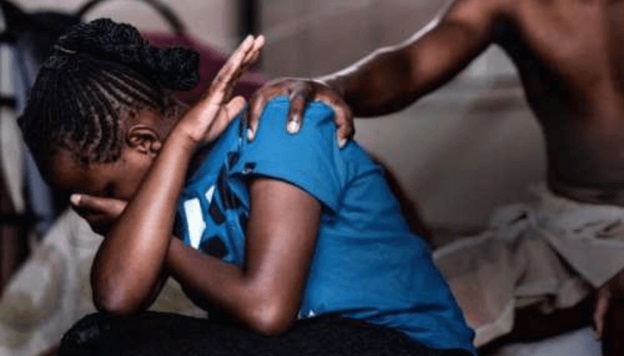A girl in a sexual abuse situation
The government has been urged to prioritise the training and support of healthcare providers in addressing the unique needs of sexual violence survivors.
This, according to experts, is crucial to ensuring that sexual violence survivors receive compassionate and trauma-informed care.
President and Chief Executive Officer of the Center for Health Development and Research (CEHDAR), Dr. Jemima Dennis Antwi who made the call said healthcare providers, particularly those in emergency settings, bear witness to the immediate physical and psychological impact of sexual violence on survivors.
She, therefore, noted that treating patients who have experienced sexual violence requires sensitivity, empathy, and specialized training to provide appropriate medical care, support, and referral to other services.
“By prioritizing survivor-cantered care and addressing the long-term consequences of sexual violence, the community and healthcare system can work together to create a safer and more supportive environment for survivors, promoting healing and resilience,” she said in an interview with Daily Guide.
Dr. Antwi said the consequences of sexual violence, such as STIs, early pregnancies further emphasize the long-lasting effects of physical and emotional toll on survivors which leads to psychological issues, including depression, anxiety, and even suicidal thoughts.
“To address these challenges, comprehensive interventions are required. This includes accessible and specialized healthcare services that provide medical care, counseling, and support for survivors of sexual violence.
Collaborations between healthcare providers, community organizations, and policymakers are essential to develop and implement comprehensive support systems that address the physical, psychological, and social impacts of sexual violence on survivors and their communities,” she added.
Case Incidence
Healthcare providers at Domestic Violence and Victim Support Unit (DOVVSU) observed that young girls reporting sexual assault or abuse cases frequently present themselves at the hospital, with an increasing trend observed over weekends.
A medical professional Dr. Karikari also noted that the Police Hospital receives an average of three to five cases per week, indicating a substantial and concerning number of incidents.
The regular occurrence of such cases he said highlights the urgent need for comprehensive interventions, support services, and collaboration between healthcare providers, community organizations, and law enforcement agencies.
By Jamila Akweley Okertchiri


